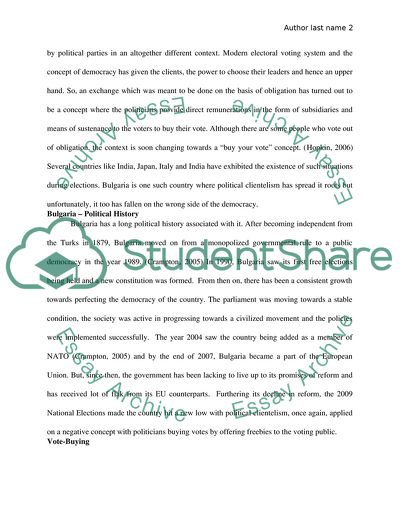Cite this document
(Political Clientelism Report Example | Topics and Well Written Essays - 1250 words, n.d.)
Political Clientelism Report Example | Topics and Well Written Essays - 1250 words. https://studentshare.org/politics/1750059-what-is-political-clientinism-examples-with-bulgaria
Political Clientelism Report Example | Topics and Well Written Essays - 1250 words. https://studentshare.org/politics/1750059-what-is-political-clientinism-examples-with-bulgaria
(Political Clientelism Report Example | Topics and Well Written Essays - 1250 Words)
Political Clientelism Report Example | Topics and Well Written Essays - 1250 Words. https://studentshare.org/politics/1750059-what-is-political-clientinism-examples-with-bulgaria.
Political Clientelism Report Example | Topics and Well Written Essays - 1250 Words. https://studentshare.org/politics/1750059-what-is-political-clientinism-examples-with-bulgaria.
“Political Clientelism Report Example | Topics and Well Written Essays - 1250 Words”. https://studentshare.org/politics/1750059-what-is-political-clientinism-examples-with-bulgaria.


